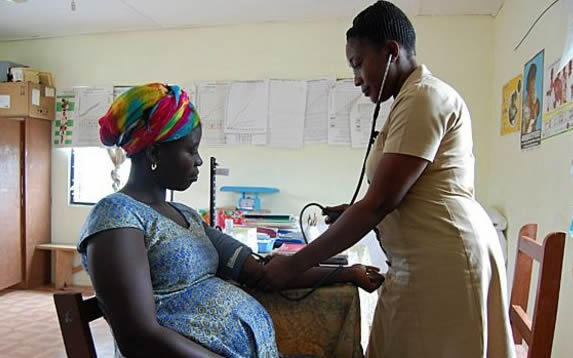40% Of Women Aged 15 To 49 Travel Over 30 Minutes To Access Healthcare – GSS
- Home
- 40% Of Women Aged 15 To 49 Travel Over 30 Minutes To Access Healthcare – GSS

40% Of Women Aged 15 To 49 Travel Over 30 Minutes To Access Healthcare – GSS

The Ghana Statistical Service (GSS) has raised concerns over the government’s Agenda 111 project, highlighting issues of facility locations and accessibility nationwide.
This comes on the back of findings from the 2022 Demographic and Health Survey (DHS) Report, conducted among 618 clusters across 261 administrative districts.
During the presentation of this report, Government Statistician, Prof. Kobina Anim, disclosed that a staggering 40% of Ghanaian women, aged 15 to 49, endure travel times exceeding 30 minutes to 2 hours for healthcare access, underscoring the profound inconveniences faced by individuals across the nation.
“We identify that about 2/5 that is in excess of 40% of women aged 15 to 49 years were travelling in excess of 30 minutes to access the nearest health facility. This puts into context the government’s intervention of Agenda 111 and where it is being situated and the extent it is going to affect the fact that we have people travelling in excess of 30 minutes, specifically 40% of people travelling in excess of 30 minutes to access the nearest health facility. Of importance to us is the disaggregation across the 16 administrative regions.”
“And from the perspective of those travelling more than two hours to access the nearest health facility where we identify the Oti region as having more than 10% of women aged 15 to 49 years travelling over two hours to access the nearest facility. The range is from 0.8 in the Eastern region to 11.6%.
“This is where the conversation around the situation of Agenda 111 should be reflected. As in is it dominant in these places where we see a lot more people travelling over two hours to access a health facility,” he said.
Meanwhile, the Director General of the Ghana Health Service, Dr. Patrick Kuma Aboagye, reiterated his commitment to rectifying these disparities within the health sector.
“While some targets have been met nationally, it is a concern that several regions fall short, showing substantial regional disparities for almost all indicators including skill delivery, and percentage of children without vaccinations. In the face of these challenges, our service commits to providing strong leadership and clear guidance to ensure coordination among multiple partners of the sector.”
“I must say that the regional disparities also shore gross disparity among the newly created regions which we see also and that is why GHS moved in there very early to ensure that we can focus on these deprived areas. And we are hoping that the next DHS will show better results in these areas.
“So we pledge to deliver high-quality services at both the facility and community levels, but we will require the support of our media and the entire population to ensure that this is done,” he said.
Source: citinewsroom.com
- Share
Classic Ghana
Classic Ghana brings you into a fun world of arts, entertainment, fashion, beauty, photography, culture and all things in between. Let’s explore these together!







